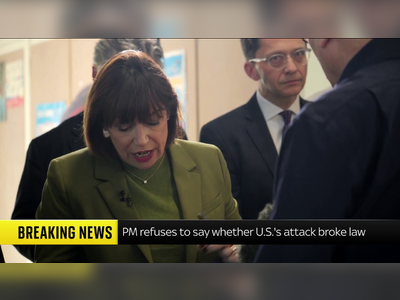
Vaccine business: The days of free vaccines may soon end in the U.S.
The Department of Health and Human Services will hold a planning session on Aug. 30, the Wall Street Journal reported, to bring together representatives from the health care industry as well as state health departments, to discuss the commercialization of COVID-19 treatments.
The move comes a few days after White House COVID-19 Response Coordinator Dr. Ashish Jha confirmed on Tuesday that the Biden Administration had taken steps to get past the crisis phase of the pandemic and stop buying vaccines, treatments, and tests as early as fall.
“One of the things we’ve spent a lot of time thinking about in the last many months…is getting us out of that acute emergency phase where the U.S. government is buying the vaccines, buying the treatments, buying the diagnostic tests,” Jha said at an event sponsored by the U.S. Chamber of Commerce Foundation.
“My hope is that in 2023, you’re going to see the commercialization of almost all of these products. Some of that is actually going to begin this fall, in the days and weeks ahead,” Jha said.
It was always the plan under both the Trump and Biden administration to push the pricing and coverage control of COVID-19 vaccines and treatments onto the healthcare industry.
As COVID cases drop and the pandemic response funding runs short, the U.S. is determined to privatize COVID-19 treatment by the end of the year.
“We’ve known at some point we’d need to move over into the commercial market, and we’re approaching that time now,” Dawn O’Connell, assistant secretary at HHS for preparedness and response, told the WSJ.
How it will work
The move to shift payments for COVID-19 drugs to the commercial market may still take months.
At the upcoming HHS meeting, company representatives and officials still need to discuss reimbursement and coverage, as well as regulatory, market dynamic, and equity issues.
Insurers and pharmacy benefit managers negotiating with drug manufacturers means prices would rise higher than what the federal government paid.
With each insurer paying for the vaccine, premiums are also likely to rise for the consumer, Larry Levitt, executive vice president for health policy at the Kaiser Family Foundation, told the WSJ.
“Without the government purchasing vaccine doses in advance, the U.S. may fall behind other countries in getting quick access to boosters and new variant-specific vaccines,” Levitt said.
A key point of the meeting will be discussing how the 30 million uninsured Americans will access COVID-19 resources.
“Right now everybody can walk into CVS and get a vaccine. I want to make sure when we make this transition, we don’t end up in a point where nobody can get a vaccine because we didn’t get the transition right,” Jha said at the event on Tuesday.
The move also might create a challenge for those suffering from long COVID, which is known to increase the risk of cognitive deficit (also known as brain fog), psychotic disorders, and epilepsy for two years after a COVID diagnosis, according to a study published in The Lancet Psychiatry on Wednesday.
Wrestling for funding
The Biden administration asked Congress in April for $10 billion to fund the ongoing pandemic response efforts. After failing to persuade Congress, White House officials said they would have to repurpose federal COVID-19 funds to supply more antiviral pills and vaccines.
As funding in government faltered, pharmaceutical companies have been eagerly watching the situation, as commercialization of COVID-19 treatments could bring a windfall worth billions of dollars in profits.
The 10 largest pharmaceutical companies by revenue brought in a collective $734.8 billion in revenue and $130.6 billion in profits in 2021, according to the 2022 Fortune Global 500, from the 12.2 billion doses that have been administered globally as of July 17.
Comments












